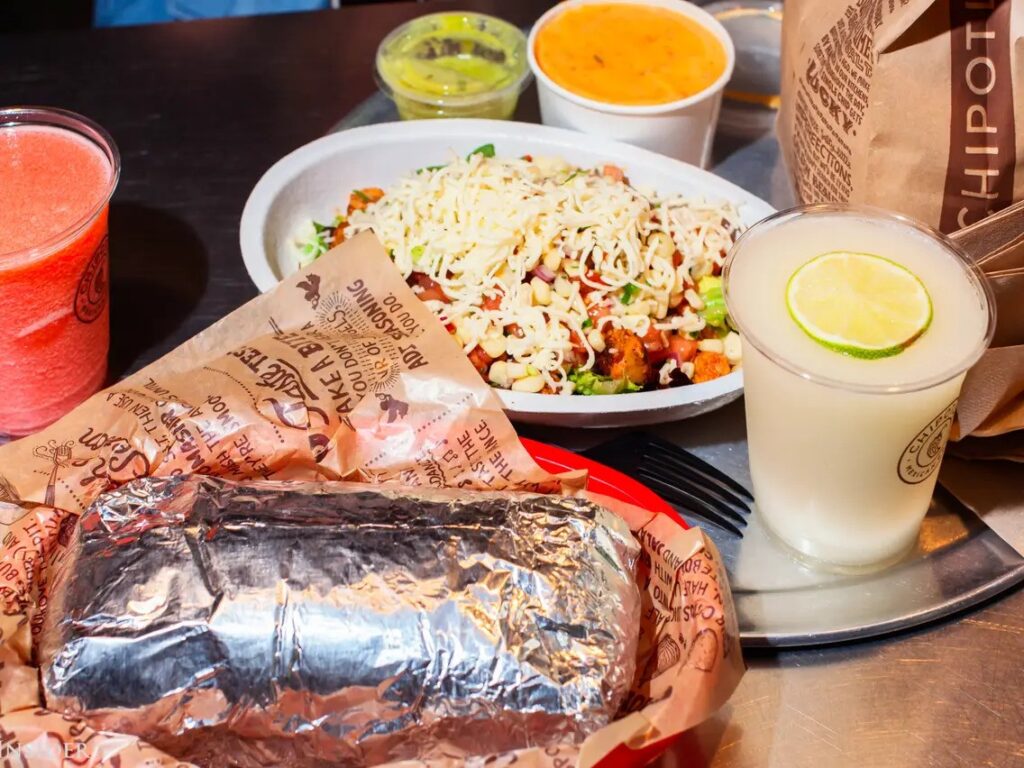Chipotle has won over countless hearts (and stomachs) with its customizable burritos, bowls, and tacos.
Known for its fresh ingredients and bold flavors, it’s a go-to spot for a quick and satisfying meal. However, as much as we love Chipotle, some of us have experienced an uncomfortable aftermath—stomach pain.
If you’ve found yourself doubled over in discomfort after enjoying your favorite Chipotle dish, you’re not alone. This blog post explores why Chipotle might leave you feeling less than stellar and what you can do to enjoy your meal without the stomach ache.
Why Does Chipotle Make My Stomach Hurt?
The Spicy Truth
Let’s address the burning question first. Several factors could be contributing to your post-Chipotle tummy troubles. From spices and seasonings to the way the food is prepared, multiple elements can trigger discomfort.
Common Ingredients That Might Cause Issues
Spices and Seasonings
Chipotle is known for its flavorful, well-seasoned dishes. While these spices add zest, they can also irritate sensitive stomachs. Ingredients like garlic, onion, and chili peppers are common culprits. These spices can cause inflammation in the digestive tract, leading to discomfort.
High Fat Content
Many of Chipotle’s ingredients, such as guacamole, cheese, and sour cream, are high in fat. While fats are a necessary part of our diet, they can be tough to digest for some people, especially in large quantities. High-fat foods can slow down digestion, leading to bloating and stomach pain.
Fiber-Rich Foods
Beans, veggies, and whole grains are often part of a Chipotle meal, making it rich in fiber. While fiber is great for digestion, too much of it can cause gas and bloating. If your body isn’t used to a high-fiber diet, you might experience some discomfort after eating.
Food Sensitivities and Allergies
Understanding Sensitivities vs. Allergies
It’s essential to differentiate between food sensitivities and allergies. Sensitivities cause digestive issues, while allergies trigger an immune response. Both can make you feel unwell, but they require different approaches to manage.
Lactose Intolerance
If you consume dairy products like cheese or sour cream at Chipotle, lactose intolerance could be the reason for your stomach issues. Lactose intolerance occurs when the body lacks the enzyme lactase, which is needed to digest lactose, leading to symptoms like bloating, gas, and diarrhea.
Gluten Sensitivity
Those who are sensitive to gluten might find that tortillas and other gluten-containing ingredients at Chipotle cause discomfort. Gluten sensitivity can lead to symptoms like stomach pain, bloating, and even headaches.
Food Preparation and Freshness
Fresh Ingredients
Chipotle prides itself on using fresh ingredients, which is a significant selling point. However, fresh food can sometimes be more susceptible to contamination if not handled correctly. Improper washing or cooking can lead to foodborne illnesses.
Cross-Contamination
Cross-contamination in the kitchen can be a risk, especially for those with food allergies. If a utensil used to handle an allergen is also used for your meal, it could trigger a reaction. While Chipotle has protocols to minimize this risk, mistakes can happen.
Benefits and Risks of Eating at Chipotle
Health Benefits
Despite the potential for discomfort, eating at Chipotle has its benefits. The focus on fresh, minimally processed foods means you’re getting a meal with less added sugar and preservatives. Plus, the variety of options allows for balanced meals rich in nutrients.
Risks
However, eating out always comes with risks. Foodborne illnesses, cross-contamination, and the potential for overeating high-fat and high-fiber foods can all contribute to stomach issues.
How to Enjoy Chipotle Without the Stomach Ache
Choose Wisely
Opt for menu items that are less likely to cause discomfort. For example, skip the extra cheese or sour cream if you’re lactose intolerant. Choose leaner proteins like chicken instead of barbacoa, and avoid the spiciest salsas if you have a sensitive stomach.
Modify Your Order
Don’t hesitate to customize your order to suit your dietary needs. Ask for a burrito bowl instead of a burrito to avoid gluten, or request extra vegetables instead of beans if fiber is an issue.
Portion Control
Sometimes, the issue isn’t what you eat, but how much. Eating large portions can overwhelm your digestive system, leading to discomfort. Start with a smaller portion and see how your body reacts before indulging in more.
Conclusion
While Chipotle is a favorite for many, it can sometimes lead to stomach discomfort for various reasons. Paying attention to your body’s signals and making informed choices can help mitigate these issues.
Whether it’s tweaking your order or being mindful of portion sizes, small changes can make a big difference. Have you experienced stomach issues after eating at Chipotle? Share your tips and experiences in the comments below!
FAQs
Why is my stomach hurting after eating Chipotle?
Your stomach might hurt due to the spices, high-fat content, or high-fiber foods in your meal. Additionally, food sensitivities or improper food handling could be the cause.
Why does Chipotle make some people sick?
Potential reasons include foodborne illnesses caused by improper food handling or cross-contamination. Fresh ingredients, while healthy, can also carry risks if not adequately prepared.
Why does Chipotle give me bad gas?
High-fiber foods like beans and certain vegetables can cause gas and bloating. If your body isn’t used to such a diet, it might react with discomfort.
Is eating Chipotle a lot bad for you?
Eating at Chipotle frequently has both benefits and risks. While you get fresh, minimally processed foods, you also risk overeating high-fat and high-fiber foods, which can cause stomach issues.


